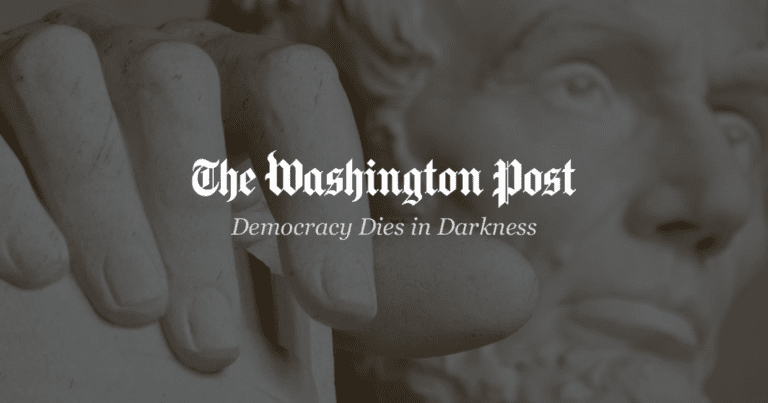The theft, loss or damage of around 2,000 objects from the British Museum, some of which ended up on eBay, has already led to the dismissal of a member of staff suspected of being involved and the departure of the museum’s director , Hartwig Fischer. But the scandal’s most profound impact will likely be the impetus it will give to international pressure for the repatriation of the objects.
British museums are genteel palaces populated by modestly paid civil servants in often historic buildings that evoke a spirit of detached scientific inquiry. But they are stuffed with the spoils of the country’s colonial adventures. As the legacy of empire is increasingly reassessed, more attention has been focused on how these institutions came to hold their treasures. Greece, Nigeria, Egypt, India, Iran, Easter Island in Chile, Sudan, Ethiopia and South Africa are among the countries and territories that have requested the return of relics.
The response to growing calls for restitution has been to emphasize the role of these museums as cultural resources that transcend nationalism. “Universal” museums that hold encyclopedic collections from around the world allow cultures to be studied and compared in one place, thus making them available to the greatest number of visitors. Some priceless antiquities would not be safe if returned to their country of origin, the script sometimes says. In essence, the argument is: we are professionals; leave it to us.
The contribution of the British Museum theft, then, is to explode the idea that this cradle of declining empire is uniquely placed to serve as guardian of the world’s cultural treasures, whether it be the Parthenon Marbles of Greece, Benin bronzes from what is today Nigeria. , the Rosetta Stone of Egypt or any other number of anthropological wonders. Losing an artifact can be considered a misfortune; losing 2,000 people is negligent, as Oscar Wilde, famous satirist of Victorian Britain, might have said.
Either way, it was always a convenient argument. It’s easier to advocate for the preservation of a museum that serves as a custodian of our common human heritage when you are the one with that collection. But why do these institutions exist in the UK? London’s status as the museum capital of the world cannot be separated from the legacy of British colonial expansion in the 19th century.
The provenance of museum objects can be a hugely complex issue, and just because some works come from countries in conflict with the British Empire doesn’t mean they were obtained dishonestly or unethically. But the idea that these institutions, having benefited from the country’s imperial wealth, can now function separately as neutral containers of the world’s cultural treasures is becoming increasingly difficult to sustain.
Changing perceptions of the connection between the UK’s museum industry and the country’s colonial past are exemplified by The Brutish Museums, an influential 2020 book by Dan Hicks, curator at the Pitts Rivers Museum in Oxford. Hicks, a proponent of restitution, details the violence and looting of bronze plaques and other artifacts from the Kingdom of Benin by British forces in 1897. Nigeria renewed its call for the restitution of the artifacts after the theft of the British Museum, as did Greece. The Pitts Rivers, along with other British museums, are in talks with Nigerian authorities to return them. The “final argument against restitution has been lost,” Hicks wrote after the incident.
For conservative critics, the restitution movement is a form of self-flagellation and wake-up call: an expression of colonial guilt that fails to appreciate the more complex and nuanced legacy of empire (the world was different back then). era; and what’s more, the British did good things like building railways). , creating relatively clean administrations and abolishing slavery, including in Benin).
Some of these arguments seem flimsy. Part of reevaluating imperialism is simply knowing the full reality of what happened. The scale of the violence may shock some. My history lessons at school included many topics on the Tolpuddle Martyrs, the Chartists, and the Corn Laws (it was the Progressive 1970s, after all); I don’t recall any mention of the looting of the Old Summer Palace in Beijing in 1860, or any other colonial encroachment.
There are striking parallels between the story told in The Brutish Museums and the behavior of the British and French soldiers in this episode, reminding us that colonialism was a multinational project with a coherent modus operandi. The destruction of the Beijing compound was an act of vandalism so wanton that it sickened even some of those who took part in it. “You can hardly imagine the beauty and magnificence of the places we burned,” wrote Charles Gordon (later killed in Khartoum). “It was heartbreaking… It was miserably demoralizing work for an army.”
The British Museum incident prompted China’s Global Times newspaper to demand the return of all Chinese cultural relics “acquired through improper means”. The museum has 23,000 such pieces, including some from the palace. The paper is state-owned, but not necessarily a reliable political guide, as it has a reputation for wolf-warrior-style nationalism.
If Britain is starting to accept the moral arguments for restitution from countries like Australia, Nigeria and Greece, then what price is it costing China, a much larger economy bigger and more important? And how many other victims of the colonial era are likely to come forward? The cloistered world of museum conservation has rarely seemed so interesting.
Read more from Bloomberg’s opinion:
• Elgin marbles are not Britain’s property: Rachel Sanderson
• Stolen Easter Island statue deserves a return home: Mark Gilbert
• It’s time to end US hysteria over China: Andreas Kluth
This column does not necessarily reflect the views of the editorial board or Bloomberg LP and its owners.
Matthew Brooker is a Bloomberg Opinion columnist covering business and infrastructure in London. A former editor and bureau chief of Bloomberg News and deputy economics editor of the South China Morning Post, he holds the CFA designation.
More stories like this can be found at bloomberg.com/opinion


